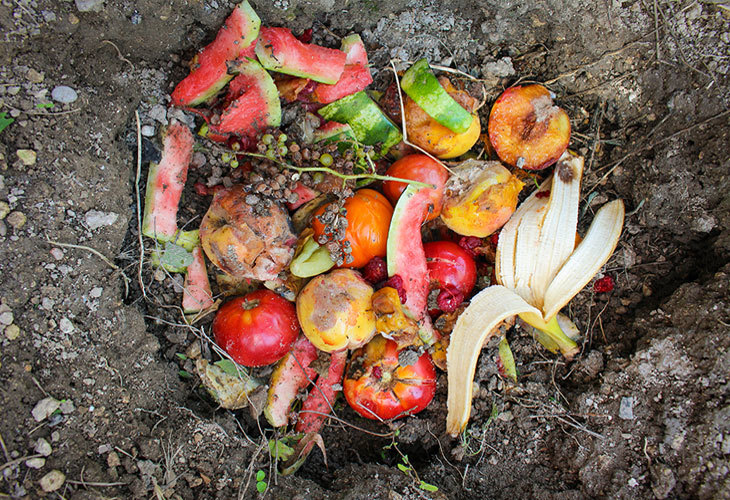Looking for nutrition for your garden plants? Just take it from your kitchen. Many food wastes are suitable for compost-making. Crush them into small pieces or turn them into plant smoothies, and your plants will grow like never before. The ultimate cheap find for your garden!
1) Orange Peels
Orange peels are a very beneficial fertilizer. Crush the orange peel into small pieces and sprinkle it over the soil or mix it into the soil. In a short time, the soil will absorb and compact the orange peel. This method is also effective in repelling insects and cats.
The addition of orange peel also acidifies the soil. This makes it ideal if you want to increase the acidity of your garden, but not so suitable for plants that require alkaline soil.
2) Eggshells
Finely ground eggshells are an excellent source of calcium. Eggshells should be washed, dried, and crushed into tiny pieces before mixing them into the soil. This not only makes the soil more alkaline but also keeps slugs away! It is especially ideal for plants such as geraniums and lavender to help them grow healthily.

3) Cooking liquid
We usually pour the water from cooking rice or potatoes down the sink, but did you know that there are nutrients left in it that make plants healthy? Water helps plants absorb nutrients and water, which means less fertilizer and less watering. For example, rice water contains a good amount of phosphorus and potassium. These elements are essential for healthy plant growth.
4) Coffee Grounds
Coffee grounds have several advantages. It attracts earthworms and also repels slugs. Earthworms are useful for making compost. Fresh coffee grounds are more acidic, but used coffee grounds will not affect the soil’s acidity because the PH value is neutral at 6.5 when washed in water. Therefore, they are suitable for plants that require alkaline soil.
5) Walnut Shells
Crushed walnut shells, when spread on the soil, generally prevent weed growth. Pistachio shells are also effective as a deterrent for slugs, and pecan mulch is an effective nutrient for acid-loving plants.

6) Banana peel
Banana peels are a source of potassium, calcium, magnesium, and phosphorus. These minerals and nutrients speed plant growth and keep pests at bay. Boiling banana peels in water, straining the liquid, and pouring it over the plants provide a great source of potassium.
7) Cinnamon
Cinnamon is not strictly a food waste, but this popular spice works wonders on moist soil. Sprinkling a small amount of ground cinnamon on the soil’s surface can reduce the risk of mold growth. Cinnamon is a natural antibacterial and fungicidal spice, which helps protect plants from disease. Try using cinnamon on seedlings and on moisture-loving plants such as ferns and monstera.
8) Pepper Leftovers
After making homemade salsa, save the seeds and leftovers of hot peppers. These food leftovers can be utilized to create natural, cost-free bug deterrents. The pepper leftovers should simply be mixed with water, strained to remove any solids, and the liquid saved in a spray bottle. Use the pepper water to mist plants to ward off insects and pests. Just bear in mind not to touch your face afterwards!

9) Onion Fertilizer
Onions can enrich the soil by incorporating crucial nutrients for your plant’s growth.
The leftover onion pieces should be pureed and combined with one liter of water. Give the solution a two-day break. Once the solution’s color has changed, filter it and, after diluting it with water in a 1:1 ratio, use the liquid to water the plants.
Do you have any other tips? Share it with us in the comments below!
